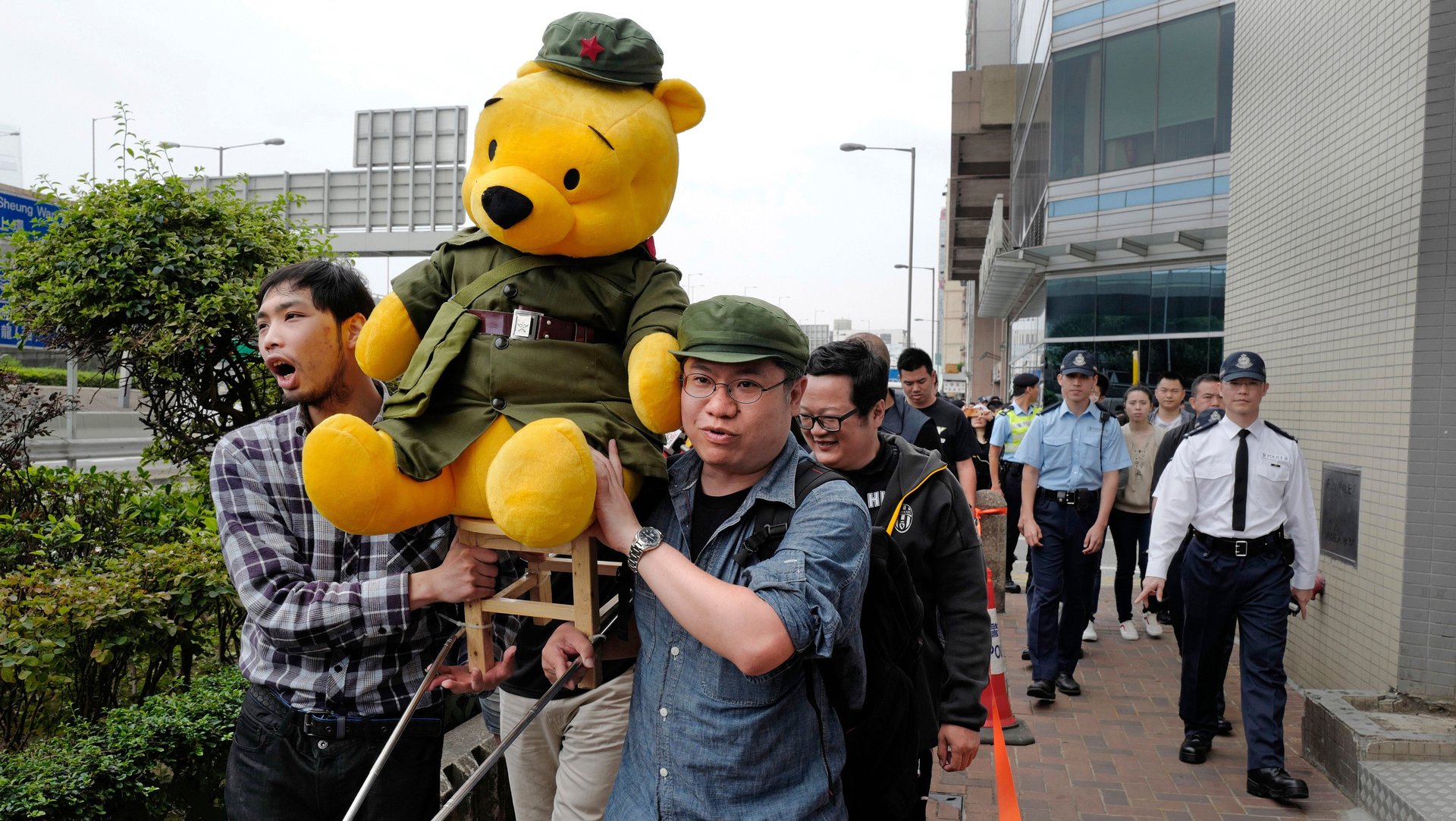‘Christopher Robin’ won’t get a release in China, where Winnie the Pooh is a symbol of resistance
Disney’s Christopher Robin has been banned in China. While no specific reason was given for the rejection, the Hollywood Reporter attributed the decision to China’s crackdown on images of Winnie the Pooh.


Disney’s Christopher Robin has been banned in China. While no specific reason was given for the rejection, the Hollywood Reporter attributed the decision to China’s crackdown on images of Winnie the Pooh.
Pooh first gained notoriety in China in 2013, when bloggers began likening president Xi Jinping to the honey-loving bear using images shared on social media site Weibo.
The mere suggestion that Xi’s face and physique could be similar to that of a chubby cartoon was enough—China’s censors started blocking mentions and images of Pooh on social media sites. In 2017, WeChat blocked Pooh on its platform, informing users that images of the character would be removed.
Satirical Pooh memes got another boost in February, when China proposed removing presidential term limits from its constitution (the proposal passed). The bear effectively became a symbol of the resistance against censorship and authoritarianism—not to mention a fun way to poke fun at Xi’s waistline.
Pooh plays a central role in Christopher Robin, which has been in development since before the controversy accelerated in China. The movie, which opened in the US on Friday (August 3), is expected to make a strong debut, earning between $20 and $30 million this weekend. It’s a mix of live action and CGI, and in addition to Pooh, Tigger, Eeyore, and Piglet, stars Ewan McGregor as the titular character.
Christopher Robin is the second Disney film, after A Wrinkle in Time, to be rejected by China this year. The Hollywood Reporter noted that the move may have more to do with the size of the movie than its content, considering China’s foreign-film quota and other Hollywood blockbusters already playing there.
But the Chinese government has a history of reacting swiftly to Pooh-related slights. When Last Week Tonight host John Oliver joked in June that Xi is “very sensitive about his perceived resemblance to Winnie the Pooh,” China responded by blocking HBO’s websites and all mentions of Oliver.